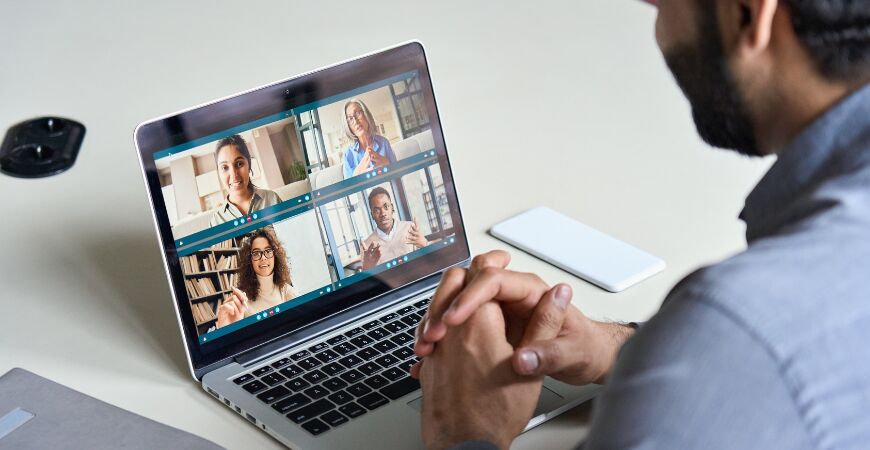
Tue 19 / 05 / 20
Creating a culture of high-performance for your remote team
By Alison Jones of
Working from home… Just a couple of months ago it was something many of us saw as a benefit reserved for the minority. Today it’s the reality, to some extent, for almost every business.
For some, working from home has been uncharted territory that’s needed careful planning. For others, a nomadic way of working is ingrained in their culture - and they’re reaping the rewards of their high-trust and people-orientated way of working.
When we look at what drives a high-performance remote culture, there are three key drivers:
1. Purpose + Direction
2. Trust
3. Communication
Let me break these down a little more…
Purpose + Direction
Everyone in your business is there for the same reason: to drive the business forward and service your customers. I’m sure you have a much sexier way of describing why you do what you do!
To ensure people feel a sense of purpose and have a clear sense of direction, your team need to:
1. Feel connected to why they’re working so hard in the extreme landscape that they’re operating in. A great way to do this is to share the impact you’re having as a business and to always ‘start with why’ (google Simon Sinek!).
2. Be crystal clear about what’s expected of them, so they can decide how they can best go about achieving those specific objectives. This means setting goals or agreeing the things you want your team to focus on within a specific time period.
Trust
Trust by default, verify by performance. Live by this mantra. The reason you set goals is so that you can trust people to deliver against those objectives in whatever way works best for them.
Compared with people at low-trust companies, research from the Centre of Neuroeconomic Studies suggested that, people at high-trust companies report 74% less stress, 50% higher productivity, 13% fewer sick days, 76% more engagement, 29% more satisfaction with their lives and 40% less burnout.
No brainer!
Communication
We talk about the importance of communication as leaders a lot. But it’s never been so important when the physical interactions we have with our team are severely impaired.
Your team should continue to:

• Feel a sense of community and have time continue to focus on relationships. Think of ways to meet up with your team such as weekly coffee meet-ups, team lunches (bonus points if you have their lunch delivered!), pub quizzes or chat channels… all remote-friendly, of course!
• Feel supported and valued by having regular face-to-face interactions with you. That means that 1:1s, catch ups and feedback should still be ‘in person’. That said, I recommend you spend some time finding out from your team how they want to ‘meet’. What works for you doesn’t necessarily mean it’ll work for them.
Creating a culture of high-performance for your remote team doesn’t require complicated tech. Apply simple tools consistently and you’ll reap the rewards of a team that’s super-engaged, productive and less stressed… something we could benefit from right now.
Alison Jones is CEO and Founder of Alison Jones Coaching and led a Virtual Bite-sized Learning: Leading Remote Teams on 14 May.
You might also like:
If you want to contribute to the Chamber blog, contact us on hannah@brightonchamber.co.uk


